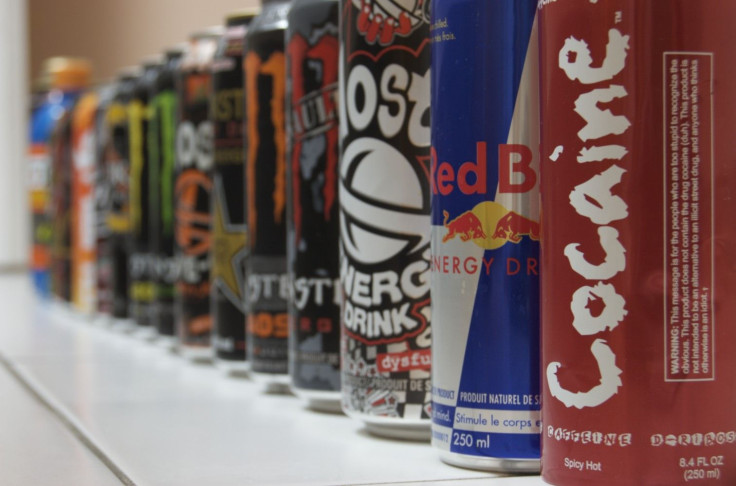US Lawmakers Threaten To Ban Energy Drink Industry From Marketing To Children [VIDEO]

Their bloodlust unsatiated since the tobacco wars, Democrats in the U.S. Senate this week attacked energy drink manufacturers for marketing to children.
Since the late 19th century, American beverage makers have marketed their concoctions as "energy drinks," beginning with Coca-Cola — a formulation containing stimulants derived from the coca leaf and kola nut, the latter of which contains caffeine. More than a century ago, the Coca-Cola Company stopped using coca as an ingredient in the nation's original energy drink, citing concerns about the use of cocaine in food products.
Now, U.S. lawmakers are questioning the use of caffeine in food products, as well as the marketing practices of the $5 billion industry in North America. In June, the American Medical Association (AMA) announced support for a ban on marketing energy drinks, similar to bans on marketing tobacco and alcohol products, saying highly caffeinated beverages may cause heart problems and other health ailments.
One in three children in the United States regularly consume energy drinks, experts told lawmakers at a Senate Commerce Committee hearing.
"We were all veterans of the tobacco wars," Sen. Dick Durbin, of Illinois, said on Wednesday. "We're getting the same run around from these energy drink companies. They are openly, openly advertising to kids and denying it."
During the first half of this year, more than 1,500 Americans visited emergency rooms for health issues related to energy drinks, half of which involved children. The U.S. Department of Health noted an increase in the overall number of such hospital visits from 10,000 to 20,000 between 2007 and 2011. Last October, Wendy Crossland sued Monster Beverage, an energy drink maker, after her daughter Anais Fournier died the previous December after drinking two 24-ounce cans of the beverage within 24 hours. The cause of death listed by her doctor in Maryland was "caffeine toxicity."
"As the sale of energy drinks has grown, so has the alarming evidence that they pose potential health risks," Durbin said. "Younger and younger people in America are exposed to higher and higher level of stimulants."
Democrats including Sen. Jay Rockefeller IV, a Democrat from West Virginia, accused energy drink makers of marketing directly toward children, although the practice is not illegal. (See report.)
"A number of companies are using marketing techniques highly appealing to teens, deliberately appealing to teens," Rockefeller said. "The question I want to get at in this hearing is whether this is responsible corporate behavior."
FDA Report, Regulatory Fight To Come
Sen. Richard Blumenthal, a Democrat from Connecticut, told executives representing Red Bull North America, Rockstar, Inc., and Monster Beverage, that Congress may regulate the industry unless corporations voluntarily refrain from such marketing practices. "Voluntary compliance... would be a good step, and if further action is necessary we would consider it," Blumenthal said.
Naturally, the American Beverage Association, which represents non-alcoholic beverage makers, disagreed with safety concerns from the AMA and others. "[W]hen you watch the news today — and every day hereafter — and you find yourself reading an energy drink story, remember: energy drinks have been enjoyed safely by millions of people around the world for more than 25 years, and in the United States for more than 15 years," the group writes.
Rodney Sacks, Monster Beverage's chairman and CEO, also disputed the health risks of energy drinks, pointing to scientific studies defending the safety of moderate amounts of caffeine. At 160 milligrams of caffeine, a 16-ounce Monster Energy, the company's best-seller, has less than half the caffeine of a similar beverage from Starbucks, he told senators.
"The safety of caffeine and other ingredients in Monster energy drinks is well established by an overwhelming body of generally accepted literature published by reputable third parties," Sacks said. The energy executive also denied targeting children and younger teenagers, saying their primary demographic is young adult males.
In May, the U.S. Food and Drug Administration announced it would investigate the use of caffeine in food products, renewing a debate more than a century old.
Below is a video from Canadian news outlet "16:9" on a purported link between energy drinks and seizures.



























